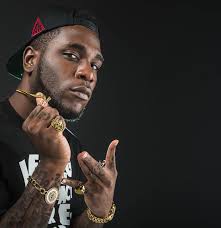
The MAMA’s have come and gone, another year’s edition is past; the country will rest a while before the hullabaloo erupts once again next year. Congratulations are in order for all those who went up the stage to accept an award and these artists once again have proven that, as a continent, we are not far away from international appeal but in fact in a zone of our own and we need to move parallel to rather than chase after international acclaim. We have a vibe of our own and we need to nurture it to grow it to its highest level.
I can’t help but admire the passion that is going through African music and the amount of effort our artists are putting into arranging wonderful lyrics, choreography, video creations and rehearsals, it is admirable and much appreciated. Just the kind of stuff that cheers you up about our continent, our love for the party while we pretend to forget, just for a while, about the socio-economic problems that bedevil us.
Understandably, we all cannot be politicking, in a melting pot of corruption, wars, terrorists, hunger and poverty it is refreshing to forget how stupid a president we have or how the state has been captured by a group of individuals with so much money more than some smaller countries or how many girls have been returned by the Boko Haram in Nigeria so far and how we need all of them back.
So for one night we turn our eyes away and dance and celebrate African music, no matter how it may seem like Nigerians sing more and win the awards more. I used to think, South Africans sing better than any other nation in Africa but I guess the MAMA’s have shown us otherwise.
Awards in Africa are not as they are in Europe, artists here start a career with monetary returns in mind not a full trophy cabinet. It is a culture that was made popular with western music promoters venturing into the lucrative and virgin land of African music. And so we are getting the hang of it, we dress up and have our pictures taken one night and we hope our favourite artists win more awards than any other. It’s a moment a lot of musicians boast about, probably in their next song, but what does it really translate to? How are these awards generated and does an award indicate a bright future or a good past season in song?
“The nominations in the music categories are selected by the MAMA “academy”, a group of music industry opinion formers and tastemakers from across the African continent who create a shortlist based on the artists and musicians who have received airplay on the channel between (21 March 2015 and 23 August 2016).” According to the ticketprodome.co.za who hosted this year’s event.
“The winners in 15 MAMA categories are chosen by music fans and viewers voting online at www.mtvbase.com and affiliated Twitter, Facebook and Instagram accounts.” The website says.
Understanding the way the awards works is really getting to grasp the mountain that these artists have to climb in order to actually win the award.
I wanted to imagine what it would take for an artist in Zimbabwe, up against 21 African artists could have possibly won the listeners choice award considering the land locked country only has 14 million people compared to Nigeria which has 12 times more at 173.6 million.
Just to refresh your mind, here is the population within the countries, Jah Prayzer was up against.
- Adiouza (Senegal) 14.3 mil
- Bebe Cool (Uganda) 37.5 mil
- Burna Boy (Nigeria) 173.6 mil
- Kiss Daniel (Nigeria)
- Den G (Liberia) 4.2 mil
- EL (Ghana) 25.9 mil
- Jah Prayzah (Zimbabwe) 14.15 mil
- Jay Rox (Zambia) 14.54 mil
- Kansoul (Kenya) 44.35 mil
- Lij Michael (Ethiopia) 94.1 mil
- LXG (Sierra Leone) 6 mil
- Meddy (Rwanda) 11.8 mil
- Messias Marioca (Mozambique) 25.8 mil
- Prince Kaybee (South Africa) 52.9 mil
- Reda Taliani (Algeria) 39.2 mil
- Saad Lamjarred (Morocco) 33 mil
- Sabri Mosbah (Tunisia) 10.8 mil
- Sidiki Diabate (Mali) 15.3 mil
- Tamer Hosny (Egypt) 82 mil
- The Dogg (Namibia) 2.3 mil
- Yamoto Band (Tanzania) 49.2 mil
Now I am not really an awards person and neither am I a huge fan of the genre that Jah Prayzer sings in (whatever you decide to call I don’t really care) but I loved the fact that he won. What he lacks in being a complete musician, he makes up through his wardrobe, choreography and video productions. Hugely disappointed that he couldn’t make it to come and say a few words or two after his name was called but that’s understandable, we all have had stage fright before (I almost fainted half way during a song performance) but certainly not Jah who has graced many stages in his life, this is the kind of moment he needed to show all us haters, fans and sexual assault accusers that he is on top of his game.
Enough said, before we digress, I had to find out how he won the award!
Firstly, did the other countries vote or they didn’t like the nominations put before them for their own representatives? It is still baffling to note that amongst the nominations, Zimbabwe only has five countries with a lower population than theirs and 16 other have more. Consequently more viewers and voters I believe and this is, Ceteris paribus, a higher population delivers more votes and voters.This would be true if each country was voting for their own nominations, which I think is what happens in this case.
Secondly, if we are to look at the figures above, are we then to say, with the way Nigerians love their music and are almost recognisable because of their braggadocio, that there were not going to vote for their two nominations and concede defeat to a newcomer, an artist they don’t even have exposure to? Did they vote at all or their cast was lost somewhere between the casting and the counting, after all we are in Africa and rigging elections is what we know best.
To many reading this, you might be regarding this as using this platform to spread my hatred for Prayzer but NO! I am merely trying to understand what is the basis of getting a Listeners award and how he did it with very few followers and fans as compared to Burna Boy and Prince Kaybee, Was the cast set aside and awarded on the basis of adding variety to the winners rather than a true reflection their so called listener’s choice? I seem to be asking more questions than providing answers here but then this is my blog, I write what I feel.

Prince Kaybee

Burna Boy
Given that this was the first time such as award had been given out, I am tempted to assume the organisers wanted to simply put the category on the spotlight, encouraging more votes the next time the nominees are put forward and to have people asking the question, who is Jah Prayzer? Surely being nominated means he deserved to win but the question still remains, did he really have more listeners dancing to ‘mudhara vachauya’ than all those artists? Is the vote based on current trends within a particular country? If so he would have deserved the award because of late he has been upping his game and giving artists a run for their money. Or maybe (this is a good one) votes casts were judged against a country’s population and given a percentage and whichever artist had the higher percentage of listeners for him won the award? In this scenario, Jah could have only prevailed because he has a huge listenership against the population in Zimbabwe and could have outsmarted the other artists in this manner.
In the end, its just my mind running wild, there are many questions and many subjects of conversations pertaining to the MAMA’s this year but its all behind us now, we celebrate, object and in the end have to respect what has been done, viva African music
What are your thoughts on the awards, let me know…..
Read more on the awards and who has won it before on the following links:
2015: http://www.okayafrica.com/news/mtv-africa-music-awards-2015-winners/
2014: http://tooxclusive.com/news/winners-mama-mtv-africa-music-awards-2014/
2010: http://jaguda.com/2010/12/12/mtv-africa-music-awards-mama-2010-winners-pictures/
2009: http://www.naijarules.com/index.php?threads/mtv-africa-music-awards-2009-winners.34953/
2008: https://www.bellanaija.com/2008/11/mtv-africa-music-awards-mamas-winners-photos/
Very good insight, it raises eyebrows!
LikeLike
Ummmmmm
LikeLike
I must admit, I’m utterly out of touch with the localized music scene in Southern Africa and understandably so because I do not get the opportunity to listen to the music that’s currently hitting the charts there. I know none of the artists presented. Using our wonderful technology, I listened to some excerpts of music from the artists on YouTube.
As a professional musician, (performer, composer, educator, and researcher), I utilize different lens to analysis musics of different regions of the world. From reading this blog, it seems there’s an excitement and a lively popular music in the region. And with the awards, there’s recognition of what these artists are putting out (whether one likes their music or not).
I can say that the African artists who are resonating internationally, for instance, where I live (USA) are the following: Youssou N’dour, Salif Keita, Manu Dibango, Yemi Alade, Davido, Cassper Nyovest, (one of my favorites, Fatoumata Diawara), of course this is a mere sample as the list goes on. In listening to these artists’ music, there’s something in common, which is: there’s a core of Africanism in their music and a marriage with western music and instrumentation. Of course, this is categorized as ‘world music,’ which is without doubt, different from strictly African music (without any fusing of other cultural musics). I think this where the rubber meets the road.
Some artists have found success just banking on their cultural music (e.g., Fatoumata Diawara) while others utilized the ‘world music’ approach. The reason that others fail to make a mark internationally is the following: there’s much desire for something new, and with that said, some of the music sounds dated, it’s the instrumentation (the sounds used in the recordings), melody structures, and ‘the vibe,’ which makes it sound like bubblegum music…which gets old quickly because of a heavy presence of repetition with ‘cheap rhythms.’ Now that is not to be confused with a rich repetition of cultural musics; for instance, Thomas Mapfumo is a perfect example. Most of his music is cultural, some fits perfectly into world music, but one cannot hear bubblegum music in Mapfumo.
Another thing that works against some of the young new artists is the idea of imitation; for example, the American hip-hop music. There’s a thin line between imitation that becomes sour and imitation that’s eyebrow raising, or what the ear fancies (of course, all of it is subjective). The point is who’s making a mark, who’s touring in Europe, Canada, and America: when you analyze those that are touring and gaining fans daily, you can hear a genuine creativity that people, across many cultural barriers, appreciate! And that’s the reason people like myself never hear of some of these artists as their visibility is minimal, internationally.
I enjoy the blog…thanks for sharing!
Cheers for now,
Dr. C. Sipho Mabingani
LikeLike
Interesting take. More questions than answers and as someone who unfortunately did not watch the Mamas or followed them all I have would be assumptions. I would be assume there would be a country bias on the votes but if an artists from a country with less population wins and award it could be a sign of maturity of the voters. Indeed how did he win it? Is it good marketing of his Music, his brand in Africa or he is just good that Africa knows him? Is he aware of the Mamas? Why didn’t he attend? That remains unknown.
LikeLike